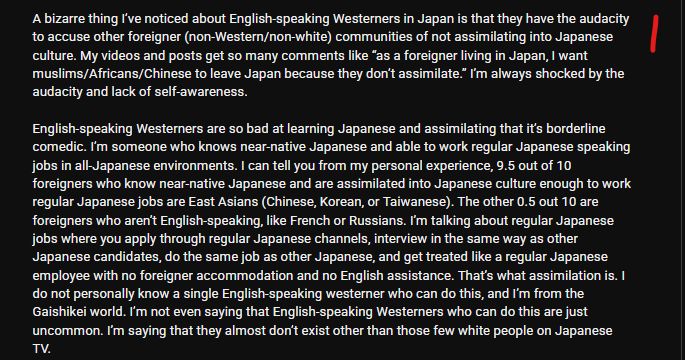Japan Media Review
@japan-media-review.bsky.social
390 followers
41 following
270 posts
Tired of learning about Japan through Western interpretations? We translate Japanese media and news to show you what Japan is really talking about.
YouTube: https://www.youtube.com/@JapanMediaReview
Exclusive content on Patreon: https://www.patreon.com/c/J
Posts
Media
Videos
Starter Packs












































